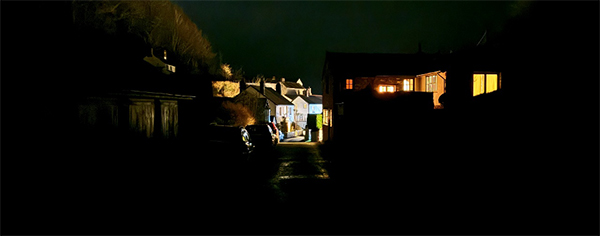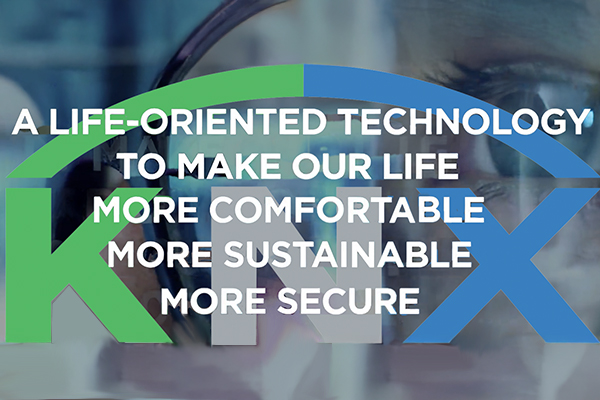
Simon Buddle takes stock of the amazing technology so many of us now take for granted, and makes the case for why KNX will continue to be the only choice for home control.
Well, that’s another year flown by. As I sit here in this idyllic cottage on the North Devon coast, storm winds battering everything to smithereens outside, we are holed up in the front room next to a log fire. It is part of the charm that you’d expect at such a cute hideaway, but it is also the only source of heat for the next 24 hours; we’re definitely into second-stage heating requirements right now.
This rural life is wonderful and yet stuck in time maybe 40 or 50 years ago. We have been transported back to a decade when milk bottles are left in doorways and people say ‘hello’ in the street. The heating runs off oil and the tank is empty. The location is so remote that there is no phone signal and more urgently, due to the storm, the oil lorry can’t get down the single-track road (which ends 50m from the cliff edge) due to the storm and debris that has been flung across said single-track road. We do have the Internet; it’s running well at the moment with a download speed nearing 10Mb/s. We decided against streaming a film after the first 20 minutes when we worked out it had taken 30 minutes to watch, buffering away as it did every 30 seconds or so. The kitchen looks out to sea, and I fully expect a pirate to tap on the window in the night looking for refuge from the storm. He’d better bring some logs and a tot of rum.

Life-changing technology we take for granted
Of course, I/we live in a technological bubble – the great digital age. The service we installers provide for our customers is little short of life changing and yet it falls into the background so quickly as to be commonplace and forgotten within weeks of the house becoming occupied.
The nature of the KNX open protocol is the glue that has facilitated possibly the greatest evolution in control systems that has ever been witnessed. Rather than being exclusive and protectionist it has been welcoming with open arms to all that care to join. In so doing, the KNX Association has built a base of dealers, manufacturers and in turn products and services that can solve almost any building’s control requirements. That powerful base continues to grow annually. It evolves to embrace recent technology as it becomes available. Last year we saw KNX bring car chargers into the fold, as well as look to give customers options in how they use and store their energy. The transition from boilers to heat pumps, whilst slow in the UK market, has been a simple and speedy transition for KNX dealers.

KNX’s 34th birthday came and went last year and whilst other manufacturing companies have existed for that time or longer, the product sets that they offer remain siloed in their specialist field, namely lighting, AC or heating – there are three wall controllers and apps to deal with right there.
What a time to be involved with KNX
With each passing year we see new products, improvements in ETS, and manufacturers creating exciting apps for us to build onto the backbone of technology we install and program. The KNX collective proves year in, year out, that it can design, build, and deliver solutions to the market that are relevant today and can sit alongside KNX products from three decades ago. That is worth celebrating. Much of what we do flies under the radar, but total house control coupled with always being suitable and flexible enough to be applied in any scenario makes KNX the only solution that makes sense.
Conclusion
My primary reason for getting involved in KNX was the realisation that I didn’t have to convince a client that they had to spend a four-figure sum on an interface simply to get the heating controls onto their touchscreen – basically a language converter that was advertised as some kind of wizardry. The open protocol and accessibility for all of KNX make it the only choice for home control. It evolves, it embraces the new, it grows, and it fills me with confidence that the future for KNX and its collective of dealers, manufacturers, training academies, and service providers is bright. Here’s to the New Year!
Right, I’m off to get some more logs, I may be some time…
Simon Buddle CEng MIET, is a consultant for Future Ready Homes, a specialist in BMS and ELV services system design.












